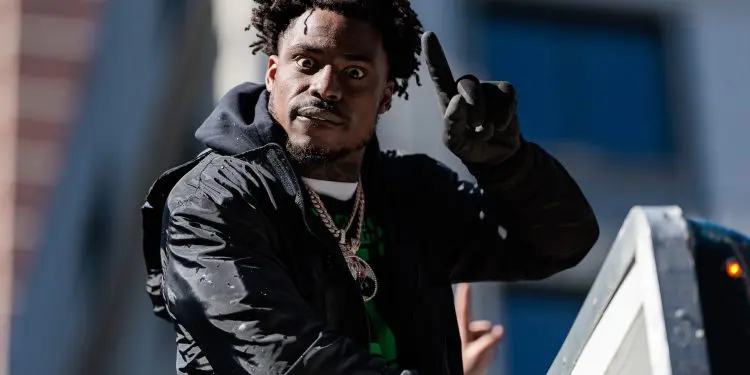A seismic shift in Philadelphia’s defensive strategy has emerged as the team sets its sights on rejuvenating its safety corps, creating an electrifying narrative around the upcoming draft.
Redefining the Defensive Blueprint
The Eagles are embarking on a bold course correction after parting ways with a much-admired defensive playmaker. In exchange for a high price, the veteran safety CJ Gardner-Johnson was traded, following a season marked by setbacks and costly interceptions. The void left behind has become the focal point of Philadelphia’s draft plans, with the organization keen on revitalizing its defensive lineup through strategic investment in emerging talent.
A Rising Star in the Making
At the heart of this transformation is Malaki Starks, a safety from Georgia whose potential is already drawing comparisons to seasoned performers. Starks is widely regarded as one of the most cerebral athletes in the safety position, with his versatility offering robust solutions to the team’s needs. With the No. 32 draft pick, expectations are high: “No. 32. Philadelphia Eagles: Malaki Starks, S, Georgia.” This declaration underscores the confidence that analysts have in his ability to adapt and excel, not only as a traditional safety but also as a capable NFL nickel – even in roles beyond his primary designation.
Strategic Alignment and Legacy
Philadelphia’s affinity for talented defensive players hails from a successful trend rooted in recent years. Their previous investments in the secondary, notably with early selections from the University of Georgia such as Quinyon Mitchell and Cooper DeJean, have laid a foundation of excellence. The potential addition of Starks represents not just a replacement for a departed star but a continuation of a proven strategy. By maintaining this connection to Georgia’s robust defensive culture, the Eagles intend to bolster their ranks with players who embody both intelligence and versatility—qualities reminiscent of this year’s version of Brian Branch.
Charting the Future of the Secondary
The selection of Starks carries the promise of broader long-term implications for Philadelphia’s defensive schemes. As debates continue about whether he could emerge as the draft’s top safety, his adaptability and on-field savvy remain the most compelling arguments in favor of his selection. His skill set, though distinctively suited for intermediary roles, complements the critical needs of an evolving defense. In pairing with other young talents, the prospect of forming a dynamic, responsive secondary invites comparisons to past successes and injects optimism about the future.
A Reflective Outlook
As the Eagles navigate this period of rebuilding, their strategic maneuvers in the draft underscore a commitment to sustainable excellence. The deliberate choice to invest in a player like Malaki Starks encapsulates more than a mere replacement—it signifies a thoughtful recalibration aimed at creating a resilient, agile, and intellectually sharp defensive unit. This proactive approach not only promises to recast the legacy of Philadelphia’s secondary but also sets a tone of renewal and ambition for the seasons to come.







